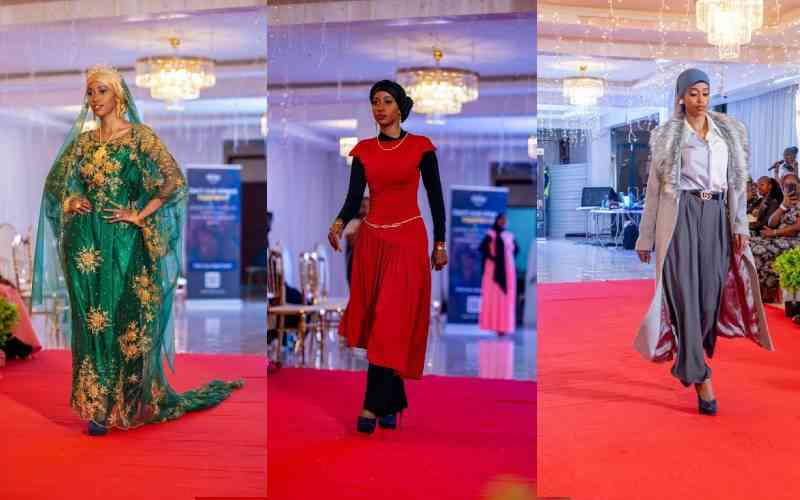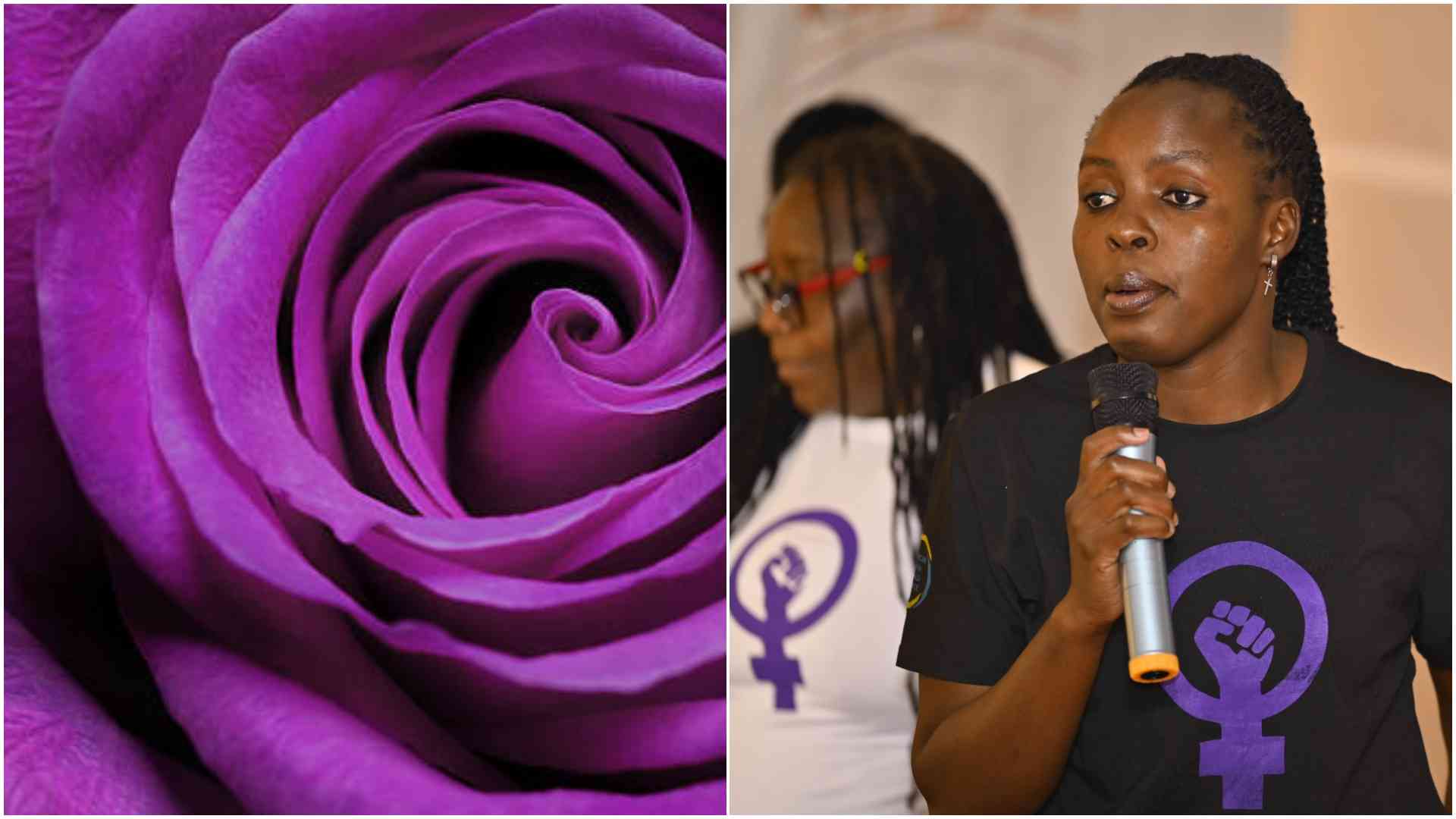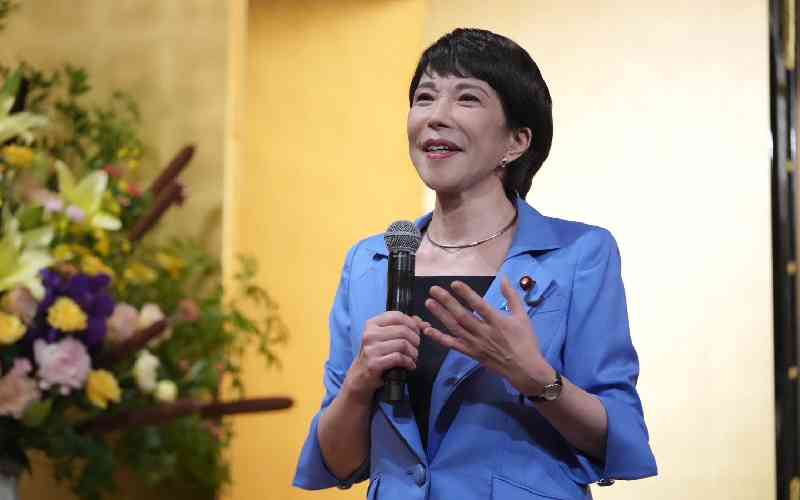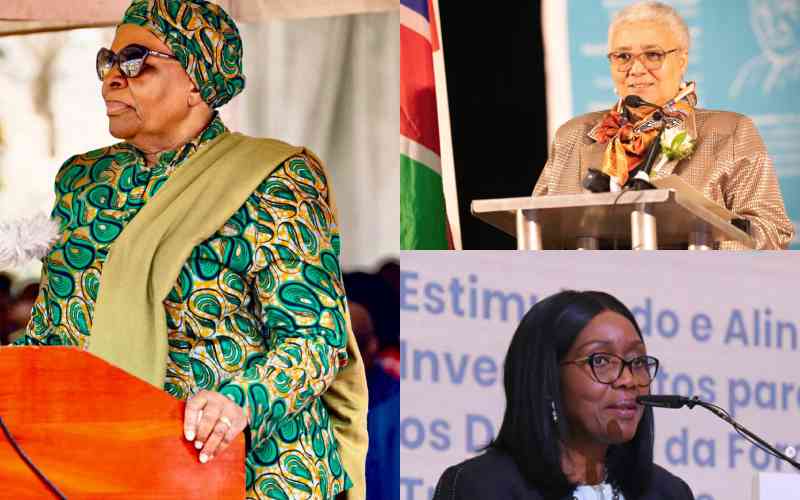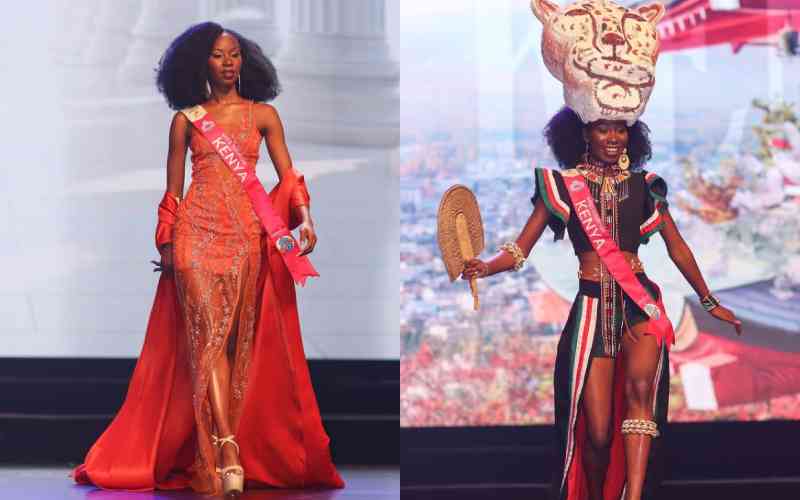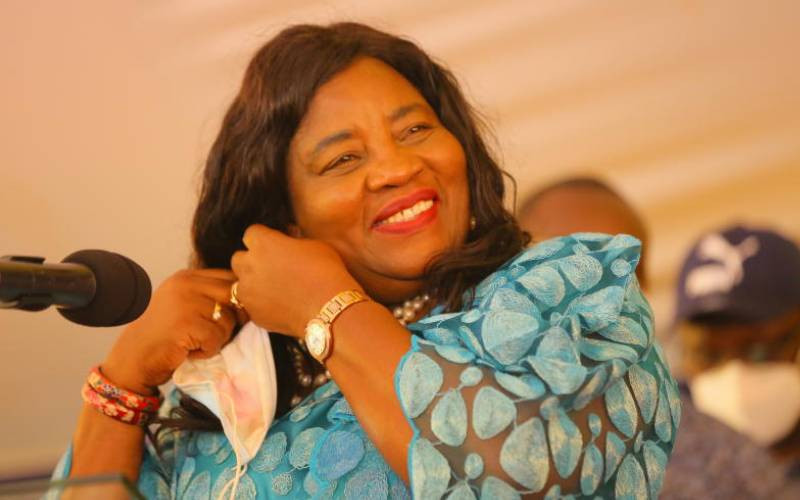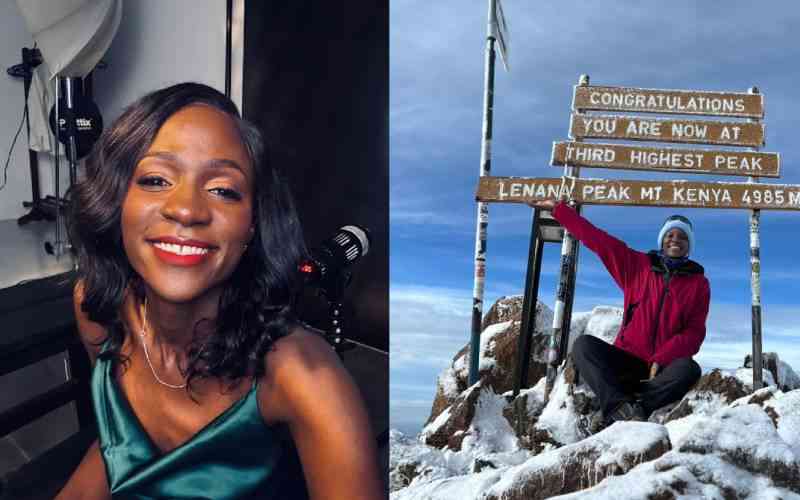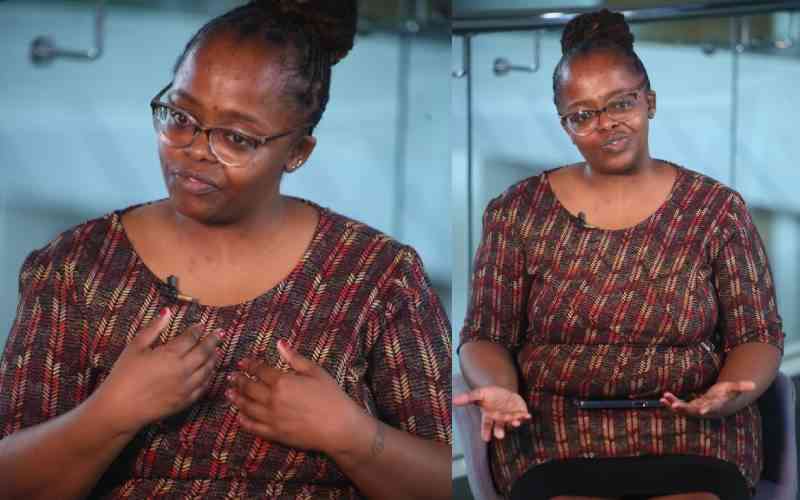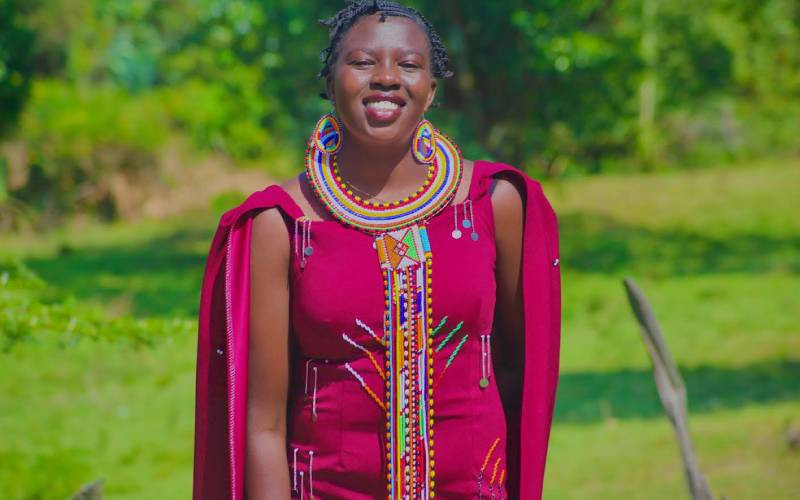
“If you had a farm, and you had to cultivate it, keep cattle in it and live in it, can you draw for me how the farm would look like?”
Pushing a note book and pen she goes on, “Just draw it here...” A few minutes later, she looks at the simplistically defined sketch of a house, vegetable garden and cowshed all enclosed in a fence and nods her head.
Then she takes the note book and draws a square. In it, she draws a few large unrefined circular shapes and several smaller ones in between. Her sketch has no order or form. It looks like a disorganised plot of land if that is what it is.
“What I’ve drawn is Kenya-assuming it was a farm. The large circular looking shapes are populated areas with human settlements like urban centres, villages or industrial areas.
The little circles are areas with wildlife- lions, cheetahs, rhinos, elephants, zebras, hyenas and their kind. They are all over the place, mixed up and if you can picture them in your mind, picture them moving about.
There is bound to be conflict. They will walk into farms and destroy crops, roads and buildings will be constructed across their habitat and force them to change their migration routes or ways of grazing. It is all chaos, and chaos leads to conflict,” she explains.
For an introduction to an interview, this sits in its own place. For an answer to a simple question on the state of human-wildlife conflict in Kenya, it was too much trouble. But for an ice-breaker, the trouble was worth it.
It is Monday morning and Dr Paula Kahumbu, CEO of Wildlife Direct holds a maroon-coloured dwarf coffee mug in one hand while animatedly gesticulating with the other free hand, occasionally spilling her coffee on the table at a coffee house near her office in Karen Connection, in Nairobi.
“We need to prioritise what is important. That is where the Government is not doing enough. There is need for zoning, there is need to keep people safe, there is need for proper management of our wildlife. The parks are small and animals must move. Most of the time when they move, they move in dependency units-when zebras and gazelles move, lions will follow. We need regulations to protect them as well as protect those people who live around them.” She goes on to expound on human-animal conflict.
In the past two years, she has been at the forefront in the campaign against elephant poaching in the country. She has been on radio shows and TV interviews speaking that wildlife conservation language and has received threatening texts and e-mails for her consistent campaign against elephant poaching. She saw a colleague get arrested in 2009 for questioning the numbers of elephants dying (apparently the numbers were way more than those being stated) as provided by the Government.
But she is not new to the wildlife conservation language. Being born in the forested area of Karen suburbs in Nairobi, being raised in a home that neighboured that of Dr Richard Leakey and being mentored by the celebrated conservationist (Dr Leakey) pretty much determined, which direction her life would take.
Especially when at the age of 17, she told Dr Leakey that she wanted to become a ranger. Later, after going through her academic results from Loreto Convent Msongari, Dr Leakey, not amused by her choice of career, decided to take her in as an intern at the Institute of Primate Research, but that was not before her mother made her sit in for secretarial classes in a secretarial college ‘just in case’.
Making it official
From wanting to become a ranger, the sixth born in a family of nine children ended up attending Bristol University in the UK for her undergraduate degree, then to the University of Florida in the US for her Masters, and finally to Princeton University for her PhD, coming out as a doctor of Ecology and Evolutionary Biology.
In between the studies, she worked with Kenya Wildlife Service (KWS), Bamburi Cement in their environmental rehabilitation wing and finally in 2007, she joined Dr Leakey at Wildlife Direct. As she narrates her journey, one is tempted to think that it has all been smooth. But no, it has been one those. She arches her eyebrows and dips her head to explain.
“It has been a road filled with rocks and dips. I changed jobs when I felt that the place I was in was not in harmony with what I believed in, that is why I left KWS. At some point, I wanted to leave the country and relocate to South Africa or some other country to teach. What most people don’t know is how powerful and well-placed people are interested in wildlife in this country. Their interest is mostly the negative kind and I had to deal with some of these people along the way. Make no mistake, there are individuals who’d want to order you to break the law in this country, I couldn’t do that,” she says.
Even though she joined Dr Leakey in 2007, she continued to hold other jobs to keep afloat and only threw all her weight and time towards elephant conservation in 2012. Did they ever see the increase in elephant poaching currently being witnessed in Africa?
“We saw it, I think. In 2009, when the Chinese bought ivory from Southern Africa (the sale was legal), we knew that demand would rise all over the continent. But it was only in 2012 that we started applying real pressure on the government and calling for something to be done.”
 The Standard Group Plc is a multi-media organization with investments in media
platforms spanning newspaper print
operations, television, radio broadcasting, digital and online services. The
Standard Group is recognized as a
leading multi-media house in Kenya with a key influence in matters of national
and international interest.
The Standard Group Plc is a multi-media organization with investments in media
platforms spanning newspaper print
operations, television, radio broadcasting, digital and online services. The
Standard Group is recognized as a
leading multi-media house in Kenya with a key influence in matters of national
and international interest.

